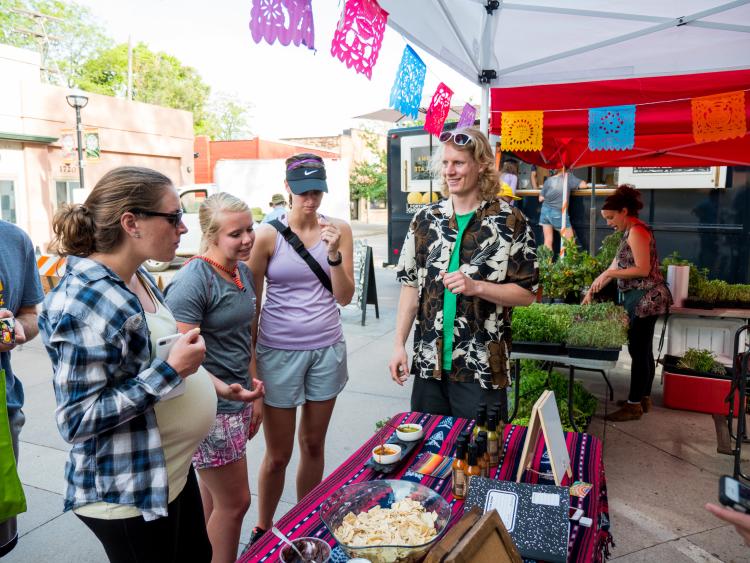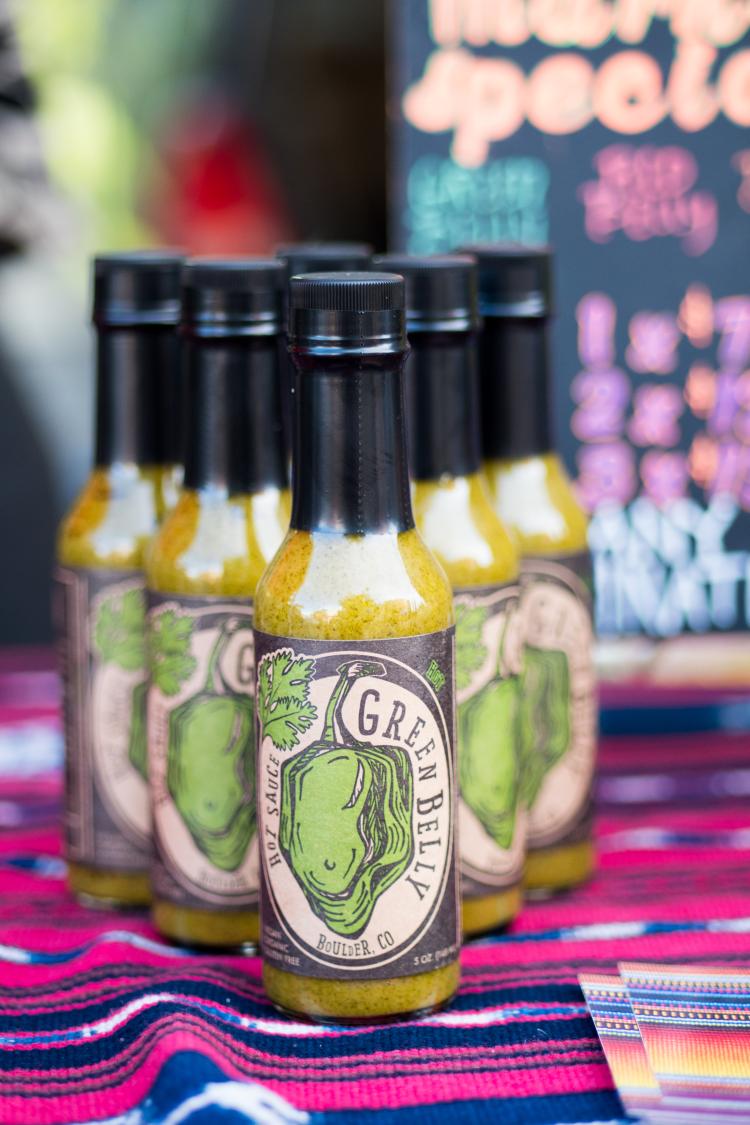2 CU grads are cooking up Guatemalan hot sauce using family recipes
Standing out in the crowded hot sauce market is tough, but two CU Boulder alumni are making a go of it with help from their family—and family recipes.
The idea for the business came when Juan Stewart shared his mother’s secret hot sauce with his friends, who convinced them to enter local farmers markets. The two cousins are carving out a space for themselves with authentic Guatemalan foods using fresh, locally sourced ingredients.
Juan graduated in 2008 with a degree in video production. He and Charlie Stewart, who earned a 2013 degree in integrative physiology and psychology with a minor in business, are grandsons of Omer Stewart, a cultural anthropologist and founder of CU’s Department of Anthropology.
Juan grew up in Guatemala and stayed with Charlie’s family in Boulder during the school year.
“He introduced me to Guatemalan hot sauce,” Charlie said. “The first hot sauce I had ever had was Tabasco, and Juan would make green sauce from his mom’s secret recipe. It was the best hot sauce I’d ever had.”
After graduating from CU, Charlie went to California to help a CU friend start a wine business. When Juan called saying he wanted to make the hot sauce into a business, Charlie’s minor from the Leeds School of Business and his experience helping with the wine company came in handy. He moved back to Boulder and the two cousins launched their Guatemalan food business in 2014.
Most green hot sauces are vinegar-heavy and rely on acidic tomatillos for flavor, the Stewart cousins say, while Green Belly Hot Sauce uses liberal amounts of organic cilantro and garlic for fresh, herbal body. Ripe habaneros are blended with olive oil and organic apple cider to create a balance of flavor and heat.
The smoky flavor of Red Belly Hot Sauce comes from the fiery cobanero pepper, a dark red, wrinkly pepper that grows in the cloud forests of Guatemala. The cobanero pepper is mixed with fire-roasted tomatoes and garlic for a smoky taste.
“You can’t get chili cobanero in the United States,” Charlie said. “We’re the only people importing these ancient peppers. We’re flavor-focused for our hot sauces as opposed to heat-focused, which is what most hot sauces are, and that makes our food taste more authentic. Importing the cobanero gives us the opportunity to empower developing indigenous communities and enables us to bring customers the unique flavor. We love creating a business that can give and give back!”
At the farmers markets, they provide chips and a blended mixture of Guatemalan black beans and spices, similar in texture to hummus, for customers to use to sample the hot sauces, because hot sauce is meant for food and friends, Charlie said. The beans were such a hit, customers would bring their own to-go containers to buy the bean mixture. So, the duo added Black Belly Beans to the repertoire of traditional Guatemalan foods for sale.
It’s been a steep learning curve and long hours breaking into the hot sauce business.
A recent weekend looked like this: Friday, make more than 100 batches of black beans; Saturday, set up at three farmers markets; Sunday, another farmers market, then pick up and clean 170 pounds of cilantro; Monday, get up at 6 a.m. to make 2,000 bottles of hot sauce.
Getting the growing business off the ground is a family affair. Juan’s brother-in-law designed the labels. Last year Charlie’s dad, who is the CU libraries facilities manager and emergency planner, planted more than 70 habanero plants at his house in Boulder. Friends and family helped support this effort by taking in the habanero plants over the winter to replant this summer. This year they want to plant 600 habaneros in Longmont.
Charlie credits the business skills he learned at CU’s Leeds School of Business for preparing him to be an entrepreneur.
Sustainability is important to the Stewarts, who strive to work with local farmers who are mindful of their impact on the global ecosystem when growing produce.
“Business is a powerful tool to help change the world,” Charlie said. “But if it’s created from the wrong space where you’re just focusing on numbers, you can end up with something that is not empowering or benefitting the world. Our business has the ability to make a social impact.”
For more information about where to buy the Guatemalan hot sauces, visit the Green Belly Foods website.








